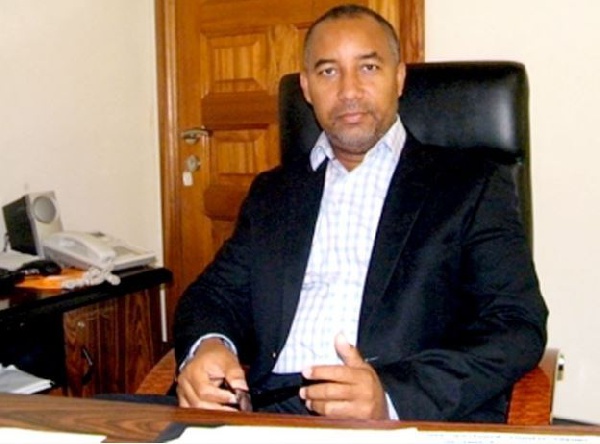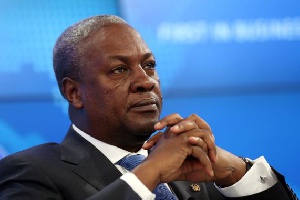The Sankofa Gas Field, which is operated by ENI, is expected to commence operations in September this year but there are concerns that the price of the commodity is among the highest in the world.
Ghana would be saddled with an unmanageable $10 billion liability based on the exorbitant gas price negotiated by the previous Mahama-led National Democratic Congress (NDC) administration.
The price agreed upon by the previous NDC administration for delivery to the country’s power generation hub at Tema would be close to $13 per a million British thermal units (mmbtu), sources close to the Ghana National Petroleum Corporation (GNPC) have told DAILY GUIDE.
The new Chief Executive Officers (CEOs) of GNPC and Ghana National Gas Company (GNGC), Dr KK Sarpong and Dr Ben Asante, are in talks with ENI in an attempt to secure lower and affordable prices.
Inflated Contracts
Sources said the Italians had complained of inflated service contracts imposed on them by the previous Mahama administration.
Also, the award of the contract to an unknown Malaysian company, Yinson, for the FPSO is part of contracts said to have contributed to an inflated development cost which exceeded that of the Jubilee and TEN Fields.
Billed to produce 170 mmscf/d of natural gas daily, the field would be Ghana’s first non-associated gas field.
This also means that it would be the first field to produce stand-alone gas as opposed to gas as a by-product of oil as in the case of Jubilee and TEN.

But analysts have stated that the Sankofa Gas Field, which should be a driver of growth and development, at its current high price, will cost Ghanaians 45 per cent more than gas produced from the Tema LNG project, 70 per cent more expensive than gas supplied from the Jubilee field and 20 per cent more expensive than the crude oil it was designed to displace.
Additionally, some experts have described the Offshore Cape Three Points (OCTP) gas delivered to Tema as the most expensive gas in the world.
And the John Mahama-led NDC was on record to have brokered the deal.
Some of its legacies in the energy sector include the $8 billion West Africa Gas Limited LNG deal, the $510 million Ameri power contract and the $2 billion Karpower deal.
Sources at GNPC said even though the structures for the afore-stated contracts were always the same, the previous administration created a narrative of impending doom and an emergency that required immediate action.
Also, it was best known for using the emergency situation as basis for closed door negotiations, with ministers signing deals to remove experts from the state institutions, especially those who tried to protect Ghana’s interests.
“Then in the quiet, back room deals would be “cooked” with shady foreign partners ready to share value,” the source noted.
“With WAGL LNG, the gas was priced at $12/MMBtu, with the minister providing guarantees and loans to companies with no capital or track-record. With Ameri, it was generating units priced at 200% of their normal value. In each case, the government signed long term contracts designed to lock in value long after they had left office, ensuring that the money kept flowing. In the case of Sankofa, with the opportunity to secure lucrative oil service contracts they pushed the corruption boat further than it had ever been pushed before,” a source said.
A GNPC source explained that the price negotiations were stuck at $6/mmbtu and had been so for months, adding that ENI complained about the delay in awarding service contracts.
“In response, the then CEO Alex Mould and board chairman arranged a day of closed door senior management negotiations at Peduase Lodge, sidelining the negotiations team.

A day later, they emerged with an agreement for the purchase of the world’s most expensive gas.
“The “cooking” of contracts didn’t simply stop at delivering an unjustifiable gas price, the negotiation team, led by Alex Mould and his board chairman, went further to “cook” contractual terms that gave GNPC no room to manoeuvre or negotiate.”
Sources at the Ministry of Energy suggested that one of the key sources of value loss was the 15-year $10 billion take-or-pay commitment, adding that “signing up to take or pay meant that even if GNPC did not take the gas because demand was not sufficient or the price was too high, it would still have to pay $10 billion over the contract term.”
They revealed that in a final attempt to secure their future, the previous administration also forced GNPC to place its revenues from the Jubilee Field into an account that would be used as payment security, depriving the national oil company of the much-needed cashflow and forcing the current administration to seek third party financing to pay for operational expenses.
General News of Monday, 6 August 2018
Source: dailyguideafrica.com
Mahama government padded $10bn ENI Gas deal
Entertainment












